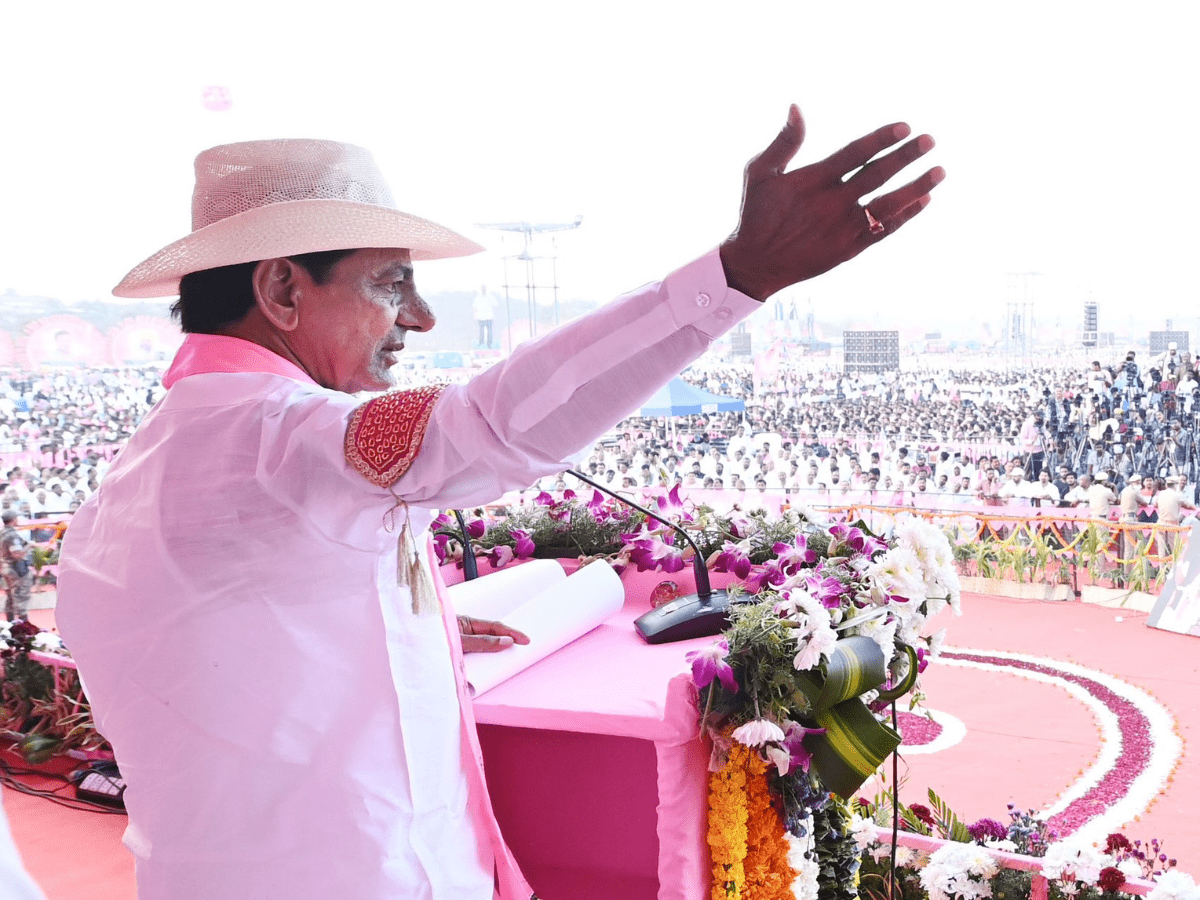
Hyderabad: Two decades after it was floated by K Chandrasekhar Rao to revive the Telangana movement, the Telangana Rashtra Samithi (TRS) turned a new chapter last month by being renamed the Bharat Rashtra Samithi (BRS).
Projecting the Telangana model of development before the country, BRS is looking to expand to other states.
KCR has succeeded in making the country take note of the Telangana model and is now pitching an alternate agenda before the nation.
Aiming to play a key role in national politics, KCR looks to expand the party’s base to other states. In less than a month, BRS managed to attract a few leaders from other parties in Andhra Pradesh and Odisha.
While the 2024 Lok Sabha elections will be the target of the BRS, its immediate goal will be to retain power in its stronghold Telangana.
Political observers believe that the emergence of the BJP as a key force with two wins in Assembly by-elections has put pressure on the BRS.
According to K. Nageshwar, after the BJP’s victory in two Assembly by-elections (Dubbak in 2020 and Huzurabad in 2021) and its good show in the Greater Hyderabad Municipal Corporation, the BRS is under pressure.
“Because the Congress was weakening, BRS thought it would have no opposition. Interestingly enough, they got a new opponent and a strong opponent in the form of the BJP,” said Nageshwar.
KCR, as Rao is popularly known, succeeded in claiming credit for achieving the goal of a separate state by winning the public mandate in 2014. In the elections held just before formal bifurcation of Andhra Pradesh, TRS won 63 seats in the 119-member Telangana Assembly.
KCR consolidated the party by attracting leaders and legislators to the TRS. Though the TRS won a huge mandate by bagging 88 seats in 2018, KCR made about a dozen MLAs from the Congress to defect to the TRS. A few legislators from other parties also switched loyalties to take the TRS tally to a whopping 103. He virtually decimated the Congress party but political observers believe that by doing so KCR indirectly helped the BJP to occupy that space.
However, unfazed by the BJP gaining strength, KCR is confident that the BRS will win the next elections hands down. The chief minister said all the surveys he had commissioned gave a favourable report about the BRS. “In the December 2018 elections, our party won 88 assembly seats. This time, the number will go up to 95. We are going to come back to power for the third consecutive time,” he told a meeting of party leaders recently.
His son and BRS working president K. T. Rama Rao believes that KCR will become South India’s first chief minister to assume the post for the third consecutive time.
The TRS in recent months witnessed infighting in some districts. Rama Rao, however, downplayed the infighting between the party leaders terming it as an indication of strong leadership and people’s acceptance of the party.
KTR believes that none of the Opposition parties are strong enough to compete with TRS in all the constituencies. “Neither the Congress nor the BJP has a strong presence in most of the constituencies. Hence, it is not sensible to name one of them as our main opponent,” he said in a recent media interaction.
Despite the bravado displayed by the BRS leaders, challenges remain for the party. The opposition parties are mounting an attack over the promises it failed to keep.
Family rule, corruption and the state’s huge debt burden are the issues being raised by the BJP and other opposition parties.
An alliance among like-minded opposition parties may add to the problems for KCR and his party. With elections still 10-11 months away, new political formations and permutations may make the poll scenario in Telangana more complex.



